Search Results
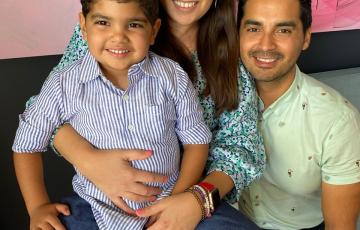
Leo
Five-year-old Leo was diagnosed with T-cell acute lymphoblastic leukemia (T-ALL) in June 2019. His parents had noticed bruising on his legs, petechiae around his eyes, fatigue, and shortness of breath, but because the symptoms didn’t present all at once, they didn’t think it was anything serious. Thankfully, on a Friday afternoon, Leo was due for a check-up where the nurse noticed the bruising on his legs and ordered a blood test.
Jess
Thirteen years ago, my cousin brought me and our family into the The Leukemia & Lymphoma Society (LLS) world. Her friend's dad had lost his battle, and I had just begun mine. In November 2011, I was told I had acute lymphoblastic leukemia (ALL). After being immediately hospitalized, poked, and prodded, I started on a clinical trial following a pediatric protocol with adult doses. It worked! By March 16, 2012, I could say I was in remission. Life was great! No more nausea, vomiting, and general crap feeling. No more pulmonary embolisms from one of the treatments.
Refractory and Relapsed Childhood ALL
Most children with ALL are cured with standard chemotherapy treatments. But about 15 percent of young patients have ALL that returns after remission. This is referred to as a “relapse” of the disease (or “relapsed ALL”). Some children are unable to achieve a remission because their cancer does not respond to treatment. In these cases, the disease is referred to as “refractory” (or “refractory ALL”).
Methods to Administer Drugs
Chemotherapy and other drugs are often given in combination with each other and can be given in different ways. The method of administering the drug is based on the actual disease diagnosed and the agent's effectiveness. Common methods include:
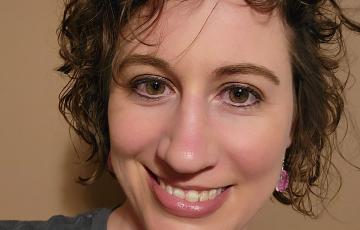
Kimberly
In October of 2020, I became sick with a sinus infection. After a 10-day dose of antibiotics, I was still sick, and the doctor gave me a stronger dose of antibiotics. Once I finished the five-day dose, I felt better, but every day I had a headache. After 28 days of continuous headaches, I decided to call the doctor again and let him know. It was a Friday, and he was off, so I was told to wait until the following Monday. Over the course of the weekend, I developed another sinus infection and lesions on my body, including on my uvula.
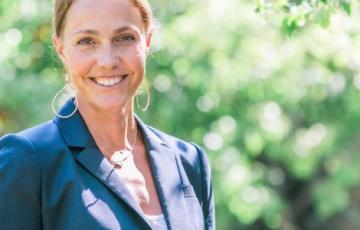
Caroline
In November of 2004, I was in the very best shape of my life. A few months prior, I had run my fastest marathon in San Diego, beating out all of my previous six finishing times in Austin, Nashville, Dallas, New York, and Boston. One month prior, I had completed the Los Angeles triathlon, finishing in the top bracket in my age division. I was even in the process of training to climb Mount Kilimanjaro with my brother. Then my entire world was turned upside down.
Heather
The Leukemia & Lymphoma Society’s Light The Night Walk serves as an inspiring, empowering and comforting event, made possible by those who share, remember, and advocate for the fight against cancer. Each year, we here at LLS are graced with countless stories that demonstrate and display the spirit of this event. Heather Lee’s story is one of them.
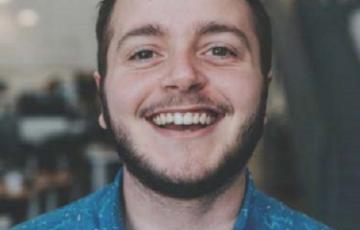
Spencer
I am a 27-year-old transgender man who won a hard-fought battle with stage 3 Hodgkin lymphoma just after graduating from college. My story begins with a good friend. One night, we were hanging out around the house and they caught a glimpse of my neck under a particular light and said, “Hey, come here for a second, your neck looks pretty swollen.” We both looked in the mirror and noticed something protruding from the space where the left side of my neck met my clavicle. I called my doctor’s office and made an appointment for the next day.
Lumbar Puncture
A lumbar puncture — also known as a spinal tap — is used to collect the cerebrospinal fluid (CSF) surrounding the brain and spinal cord to detect disease, infection or injury. A lumbar puncture can tell doctors whether blood cancer cells are present in the sample. In addition, the pressure in the fluid surrounding the brain and spinal cord can be measured to provide other important information.
How Is It Done?
Your Treatment Team
Oncologists and hematologists are specialists who treat persons with leukemia, lymphoma, myeloma, myelodysplastic syndromes and myeloproliferative diseases. Pediatric hematologist oncologists treat children, adolescents and some young adults who have blood cancers. The oncologist or hematologist-oncologist coordinates a treatment and follow-up plan that involves other doctors as well as nurses, social workers, case managers and nutritionists.
Fertility
People in the YA age group can be in many different stages of life. You may have children; you may want children in the future; you may not want children now, but may change your mind; or you may not have given it much thought at all. Cancer treatment can affect fertility in both women and men making it difficult to conceive a child in the future. A cancer diagnosis may require you to think seriously about children.
Not all cancer treatments affect fertility. Your risk depends on several factors, including
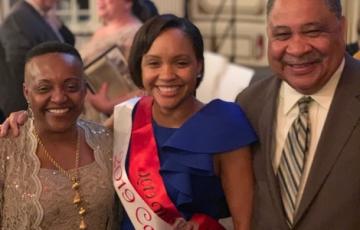
Laraine
November 21st is Family Volunteer Day. The Leukemia & Lymphoma Society (LLS) encourages you to volunteer as a family today. Whatever you choose to do, do it together. Some ideas include: take a few minutes to call a friend, neighbor or colleague; cook a meal together and drop it at the doorstep of someone in need; rake a neighbor’s yard or put a book in a neighborhood lending library.
To honor this day, we are sharing the story about a family faced with a cancer diagnosis, who banded together when the future seemed so unclear.
Steven
I'm the wife, Hannah. My husband is the fighter. I call him Mr. Steven, babe, and sometimes even Esteban. We fight together, of course, but he's the one throwing the punches and kicking cancer's butt.
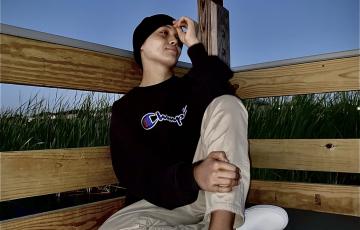
Joshua
Just three days after Christmas, my world was turned upside down. I was admitted to the hospital because I was unable to keep any food down and felt terrible overall. Upon admission, I had a multitude of issues, just a few being extremely high uric acid levels, severe dehydration, pancreatitis, and nephrosis. They also discovered that I had lost 20 lbs.! Later in the hospital, I would lose 20 more.
Joshua
Just three days after Christmas, my world was turned upside down. I was admitted to the hospital because I was unable to keep any food down and felt terrible overall. Upon admission, I had a multitude of issues, just a few being extremely high uric acid levels, severe dehydration, pancreatitis, and nephrosis. They also discovered that I had lost 20 lbs.! Later in the hospital, I would lose 20 more. I remained in excruciating pain for three weeks while multiple branches of the hospital were trying to find out what was wrong with me.
Getting a Second Opinion
Leukemia, lymphoma, myeloma and myelodysplastic syndromes are each different types of cancers. What's more, each disease has subtypes. This means that the signs of the disease, how it's diagnosed and treated and the expected outcomes vary. That's why it's essential to have the right diagnosis before you begin or continue with treatment.
Michael
I’m a 12-year survivor of acute myeloid leukemia (AML). I was diagnosed on Sunday, October 4, 2009.
My oncologist was Dr. Ian Flinn. The first 24 hours following my diagnosis were very harrowing. I was ground transported from Murfreesboro to Sarah Cannon Cancer Center in Nashville where they had a gurney awaiting me curbside. A nurse by the name of Regina stayed with me for almost the entire duration of my first eight hours.

Teresa
I was diagnosed in 2009 with chronic lymphocytic leukemia (CLL). Upon diagnosis, perhaps the greatest shock was becoming aware that I knew so little about cancer, so little about the medical system, and how one needs to go about a process of self-education regarding their disease.
My diagnosis occurred at the Simon Cancer Center, a part of the Indiana University Health System. I was fortunate to have a neighbor who is a nurse practitioner at this cancer center. She intervened when she found out that a routine shoulder MRI revealed multiple enlarged lymph nodes.

Lila
It’s January 11th, 2017, well past midnight, probably around 3 am. I am on the side of a mountain in Africa, 1000 miles away from home, in pitch black out, -20º with the winds, and I can barely feel my fingers. All I can see is the headlamp spot of light shining on the trail.
I think to myself, “Well, Lila, maybe this was not your best idea!” I look up and call my teammate in front of me, my best friend Dawn, and say, “Dawn, I am sorry I talked you into this.” She just looks at me, gives a knowing smile, then turns back to the path in front of us!
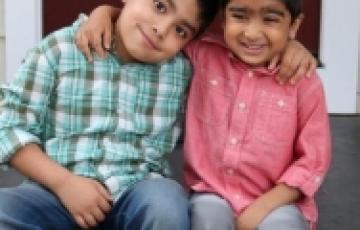
Kabir
Kabir is an eight-year-old boy who is very affectionate, loving, and sweet. He has endless interests and loves dogs, superheroes, ponies, mermaids, magic shows, zoos, roller coasters, rock collecting, traveling, eating at "fancy" restaurants, watching television and movies, building Legos, and playing video games. Before his diagnosis, Kabir also enjoyed swimming and Brazilian Jiu Jitsu. He is caring by nature and an amazing older brother to his younger sibling, Ayaan.
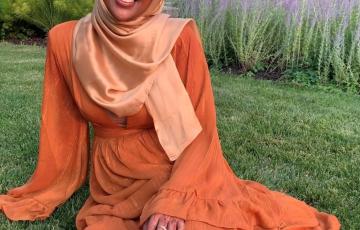
Munira
I will never underestimate my parents' sacrifices to provide my siblings and me with the millions of opportunities we have due to their hard work. My parents were born and raised in Addis Ababa, Ethiopia. Both were born to families who instilled the traditional family value of grit in every walk of life. My parents both obtained a high school diploma with the intent of seeking higher education, but the obstacles of living in a developing country robbed them of the chance.
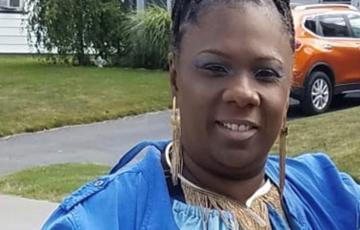
Kennetha
I found out about The Leukemia & Lymphoma Society (LLS) through a peer at Brockport College where I attend the Healthcare Administration BSN program. My peer had many great things to say about LLS and was excited to be a volunteer intern. I'm grateful that I was given the opportunity to reach out to those who experience the life-changing event of having blood cancer and can provide them with the resources and support that LLS offers. I love volunteering for LLS because it helps me fulfill my passion for caring for others and making a difference in people's lives.

Lori
Just a month before turning 60, I was diagnosed with follicular lymphoma (FL). I really had no symptoms. I had just finished a year of pretty much full-time, long-term substitute jobs at our local middle school. I’m a retired high school English teacher. I had also traveled with my family to both Williamsburg, Virginia and Las Vegas with my sister and her husband. We were only home for four days when I flew my daughter and two-year-old grandson here to Alabama for a week.

Morgyn
June 18th, 2021. A day that I would never expect to happen never in a million years. I was 17 years old living my life like any other teenage girl would. Let me rewind back a few months to February 14th, 2021, yes Valentine’s Day. I was so sick that morning and with COVID-19 still running at its highest I decided to test myself. The test came back positive. I was so sick, the sickest I had ever been and as my quarantine was coming to an end I still felt as if I was still so sick with COVID.

Kent
When Noah was born in 2005, we were surprised when the doctor told us he had Down syndrome. Soon after, we were informed about all of the things that Noah wouldn’t or couldn’t do in his lifetime. We were also given a laundry list of medical problems that he could potentially have. Two months after he was born, Noah went into heart failure and had open heart surgery to correct four holes in his heart. This was a tough time but boy did we have more to come and didn’t know it. He has since had multiple surgeries, tests, studies, etc. We were told that Noa